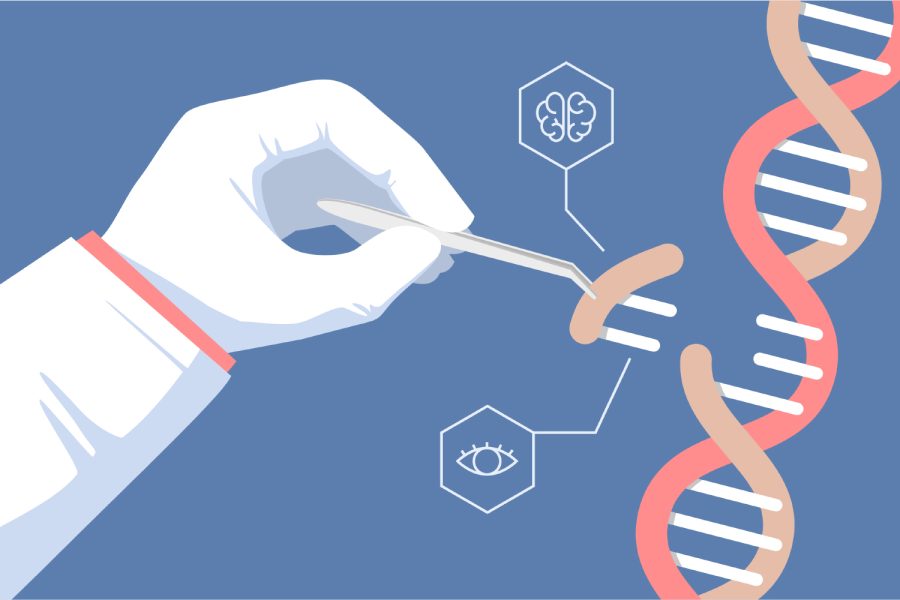Opinion | CRISPR and gene editing is the future
We are entering a future where we can eradicate disease. It’s time to embrace it.
July 12, 2022
The most exciting thing about the future of humanity is our path to immortality as we will begin to eradicate deadly illnesses through the advancements of gene editing.
When liberals like myself, and other left-of-center ideologues hear the words gene editing, we tend to dismiss the idea as eugenics.
This should not be the case because if society can ensure that all humans have access to gene-editing technologies, we will be able to improve the lives of billions.
In the 1980s, scientists were shocked when they discovered that some bacteria, such as E.Coli, were resistant to viruses.
This is because these bacteria would incorporate some of the virus, splicing its genetic sequence and adding the virus’s DNA into their own. Thus, when a bacterium would re-encounter a virus, the virus would not be able to infect it.
This type of sequencing became known as clustered regularly interspaced short palindromic repeats (CRISPR), which is carried out by cas enzymes. In 2012, it was determined that at least theoretically, when CRISPR is paired with cas enzyme 9 (cas9), scientists can use it to change and edit the human genome.
The theory was seemingly confirmed to the widespread public in 2019 when a Chinese doctor, using CRISPR, edited the genome of a human embryo to make it HIV resistant. It is important to note that the experiment has been incredibly controversial and the technology is still rudimentary.
Despite this, it is becoming incredibly clear that in the near future, humans could have the ability to genetically modify themselves to become resilient against diseases such as AIDS, COVID-19, and Alzheimer’s.
This is where the supposed ethical dilemmas of gene editing come in. Many disability rights advocates claim that using CRISPR to eradicate ailments such as cystic fibrosis or multiple sclerosis is a position that advocates for eugenics.
I find that when one makes an objection like this, they are both advocating for making the world a worse place.
First, to address the spectacularly cretinous comparison of CRISPR to eugenics, one has to understand why eugenics is a horrid crime in the first place.
The late 19th and early 20th centuries saw the rise of eugenics as state policy. Many individuals with disabilities were marginalized, brutalized, and sterilized by the state. No matter how severe one’s disability, those individuals had a sense of self or personal identity.
To borrow the view of Scottish philosopher, David Hume, one gains a sense of personal identity when they are able to experience and feel the perceptions of the world around them. These perceptions go on to shape the values, beliefs, and emotions we conjure up in our minds.
People with disabilities clearly are able to obtain this sense of self, thus implementing policies to harm them are clearly eugenicist. A human embryo, on the other hand, is not a person because it is not able to experience the world in which people occupy. Thus, if we were to edit the genome of an embryo, we would not be operating on a person.
Second, most ethical theories strive to better the quality of life for all persons, so long as we do not harm others. Empirical data shows that those with disabilities tend to lead to lower qualities of life compared to able-bodied individuals. CRISPR would instantly better the lives of people with disabilities by editing out the disability and making it so that they are able to live a longer, healthier life.
The technology to make gene editing possible is rapidly approaching and could instantly improve the quality of life for billions of future humans. It is for that reason that humanity should embrace the possible CRISPR revolution.
Columns reflect the opinions of the authors and are not necessarily those of the Editorial Board, The Daily Iowan, or other organizations in which the author may be involved.



